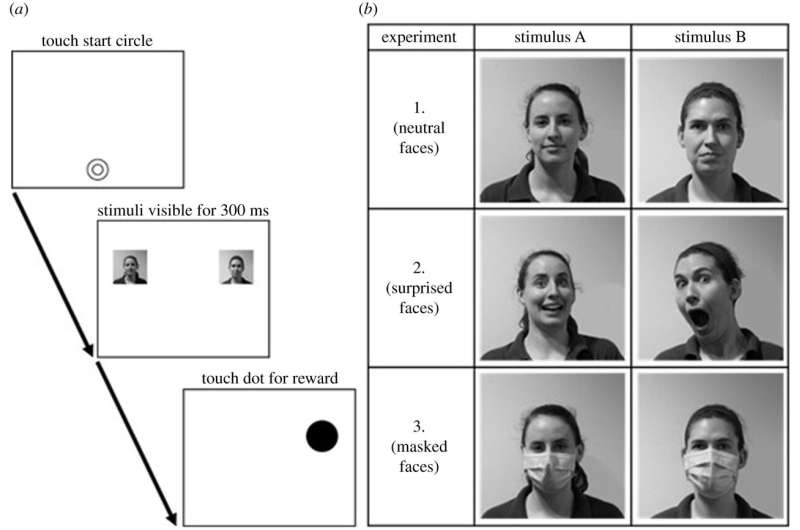May 2, 2022 report
Great apes found to look longer at unfamiliar human faces than those they know

A team of researchers with the Lester E. Fisher Center for the Study and Conservation of Apes and the Urban Wildlife Institute, Lincoln Park Zoo, has found that two species of great apes tend to look longer at unfamiliar human faces than those of people they know. In their paper published in the journal Proceedings of the Royal Society B, the group describes experiments they conducted with chimpanzees and gorillas at the Lincoln Park Zoo in Chicago and what they learned about the interests of great apes.
As they note, a lot of research has been done with primates held in zoos focusing on their behavior around different types of people, such as handlers versus zoo visitors. But little has been done to better understand how they distinguish people who are familiar to them from those who are not. In this new effort, the researchers conducted experiments with five gorillas and seven chimps to learn more about how they process facial information.
The experiments consisted of asking the great ape test subjects to look at a computer screen displaying images of human faces. In the first set of experiments, the test subjects were shown images of pairs of human faces one after the other, one of which should be familiar to them, the other completely unknown. Each run started with a black circle on the screen to get the focus of the test subject. When the test subject touched the circle, it disappeared and the picture of the faces appeared and were shown for 30 seconds. They then were replaced by a dot. When the test subject touched the dot, the computer would chime and a fruit reward would be given. The researchers found the test subjects tended to take longer to respond when looking at unfamiliar faces. The researchers repeated the experiments, but on the second go round, the faces all had surprised expressions on them. They then did it again with pictures of people wearing COVID face masks. They found that the test subjects looked longer at the unfamiliar faces even when they were wearing masks, but not when they had surprised expressions on their faces.
The researchers suggest their experiments show that the great apes were able to categorize human beings based on how familiar they were to them. They also suggest that the apes showing bias toward unfamiliar faces represents a "novelty effect."
More information: Jesse G. Leinwand et al, Familiarity mediates apes' attentional biases toward human faces, Proceedings of the Royal Society B: Biological Sciences (2022). DOI: 10.1098/rspb.2021.2599
Journal information: Proceedings of the Royal Society B
© 2022 Science X Network


















